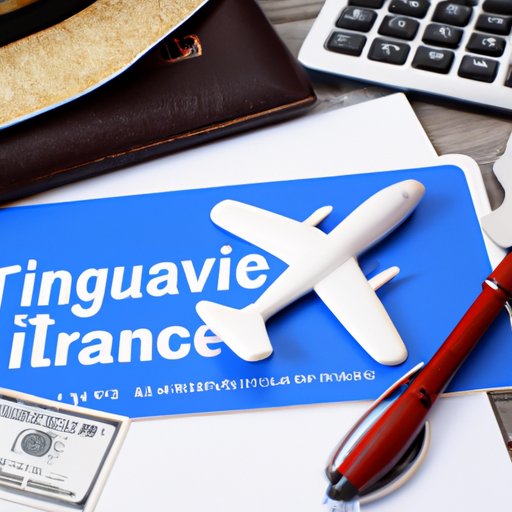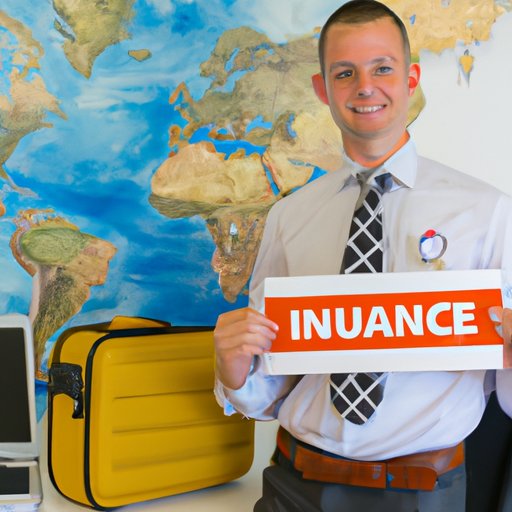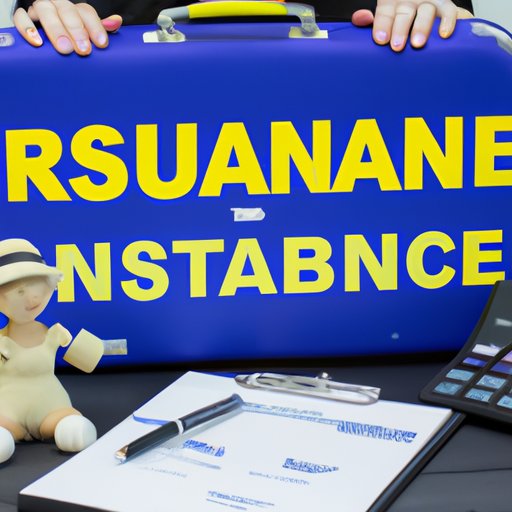Introduction
Travel insurance agents are responsible for helping people find the right type of insurance coverage when they are planning a trip. They provide advice on the best policy to fit their needs and help them understand the risks associated with traveling. In this article, we will explore the qualifications and training required to become a travel insurance agent, the different types of policies available, and the job duties and responsibilities of a travel insurance agent.

Qualifications and Training Required to Become a Travel Insurance Agent
In order to become a travel insurance agent, you must meet certain qualifications and complete certain training courses. The qualifications vary from state to state, but generally include a high school diploma or equivalent and a valid driver’s license. You may also need to pass a background check and have experience in customer service.
In addition to meeting the qualifications, you must also complete the necessary training courses. Depending on the state, you may be required to complete an approved pre-licensing course before you can obtain your license. Once you have obtained your license, you will need to take continuing education courses in order to maintain it. These courses cover topics such as insurance laws, regulations, and ethics.
Different Types of Travel Insurance Policies
When recommending policies to clients, it is important to understand the different types of travel insurance policies available. Some of the more common types of policies include medical coverage, trip cancellation and interruption insurance, and lost luggage insurance.
Medical Coverage: Medical coverage is one of the most important types of travel insurance. It provides protection against the costs of medical care while traveling abroad. Many policies also provide coverage for emergency evacuation, repatriation of remains, and other related expenses.
Trip Cancellation and Interruption Insurance: Trip cancellation and interruption insurance provides coverage if a trip is cancelled or interrupted due to an illness, injury, or some other unforeseen circumstance. It can also provide reimbursement for non-refundable deposits and tickets.
Lost Luggage Insurance: Lost luggage insurance provides coverage for any items that are lost, stolen, or damaged during a trip. It can also provide coverage for delayed luggage.

Marketing Yourself as a Travel Insurance Agent
Once you have obtained your license and completed the necessary training courses, you will need to start marketing yourself as a travel insurance agent. This can be done through a variety of methods, including developing your brand, networking with other professionals, and advertising your services.
Developing Your Brand: Developing your own personal brand is essential for success as a travel insurance agent. This includes creating a logo, website, and social media accounts. You should also create business cards and brochures to promote your services.
Advertising Your Services: Advertising your services is another way to increase your visibility. You can advertise through online directories, search engines, and social media platforms. You can also reach out to potential clients through email campaigns and direct mail.

Job Duties and Responsibilities of a Travel Insurance Agent
Once you have established yourself as a travel insurance agent, there are several job duties and responsibilities that come with the position. These include gathering client information, evaluating and recommending insurance plans, and processing claims.
Gathering Client Information: As a travel insurance agent, it is your responsibility to gather all relevant information about a client’s trip. This includes the destination, duration of stay, and any activities that will be undertaken. This information is then used to evaluate and recommend the best policy for the client.
Evaluating and Recommending Insurance Plans: After gathering the necessary information, you will then evaluate and recommend the best insurance plan for the client. You must consider the types of coverage needed, the cost of the policy, and any exclusions or limitations.
Processing Claims: As a travel insurance agent, you will also be responsible for processing claims. This involves collecting all the necessary documents and filing the claim with the insurance company. You may also need to provide assistance to the client throughout the process.
Conclusion
Becoming a travel insurance agent is a great way to help people protect themselves and their belongings while traveling. To become a travel insurance agent, you must meet certain qualifications and complete certain training courses. You will also need to understand the different types of policies available and have the ability to market yourself. Finally, as a travel insurance agent, you will be responsible for gathering client information, evaluating and recommending insurance plans, and processing claims.
(Note: Is this article not meeting your expectations? Do you have knowledge or insights to share? Unlock new opportunities and expand your reach by joining our authors team. Click Registration to join us and share your expertise with our readers.)
